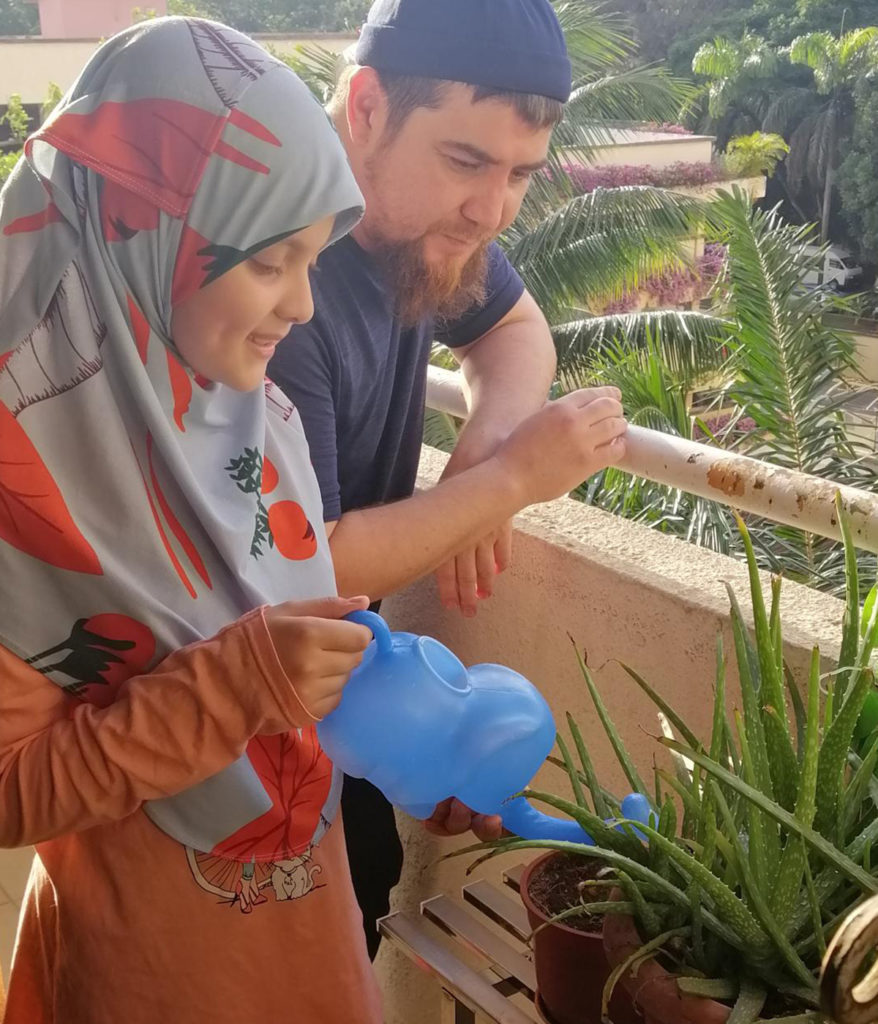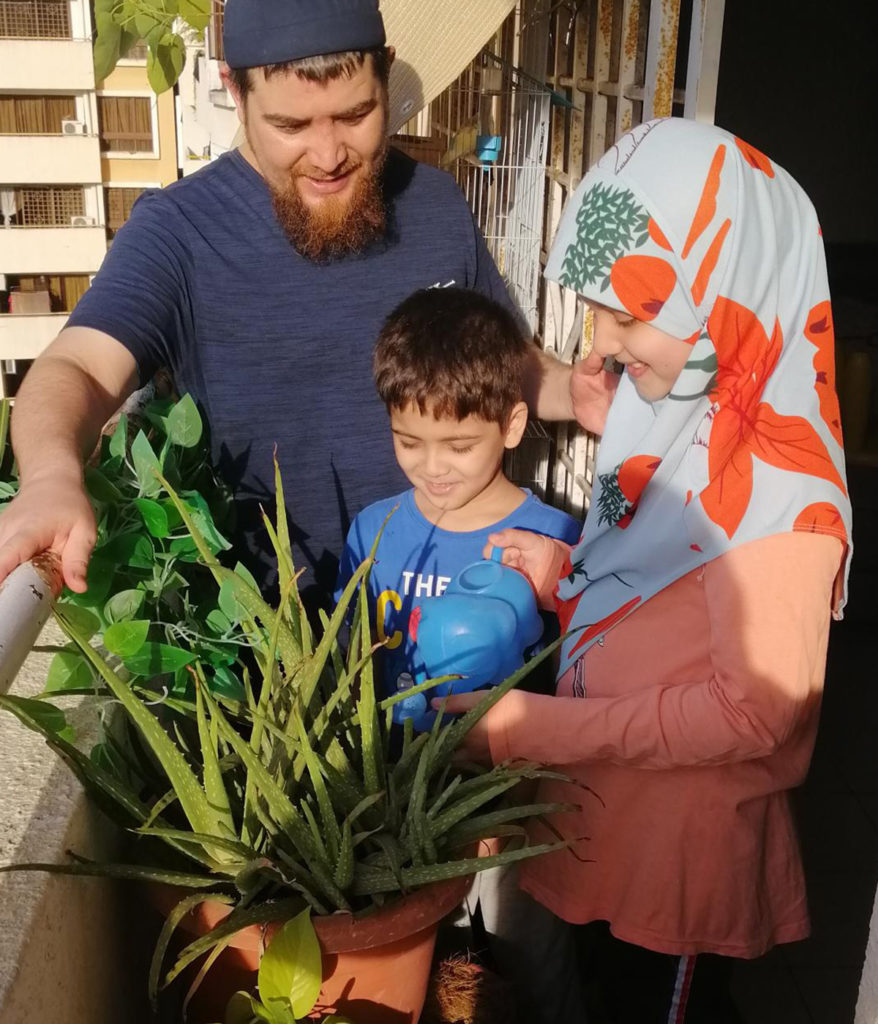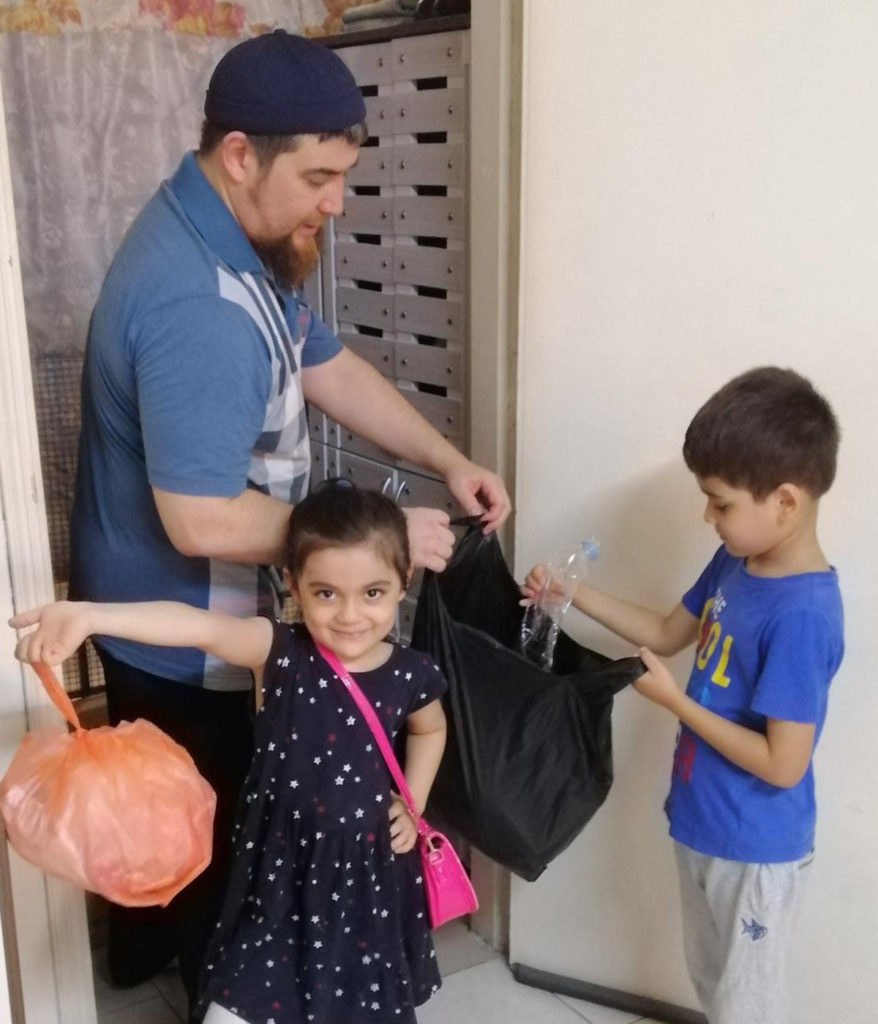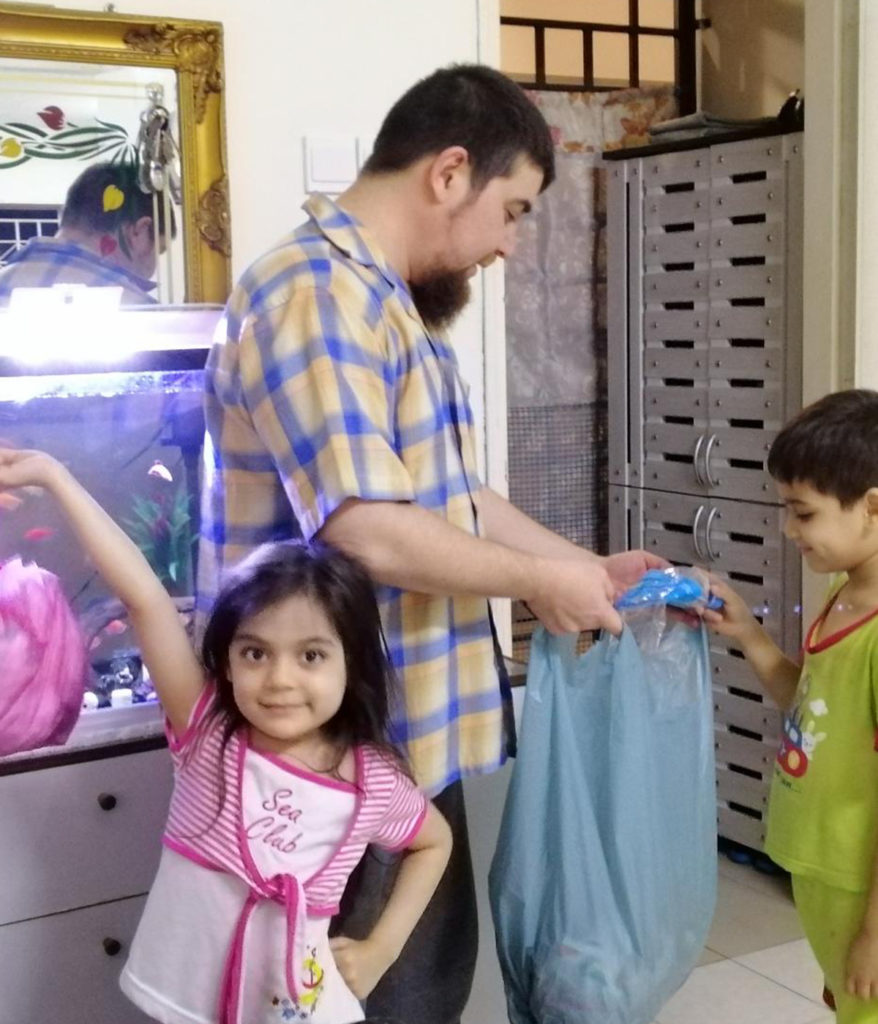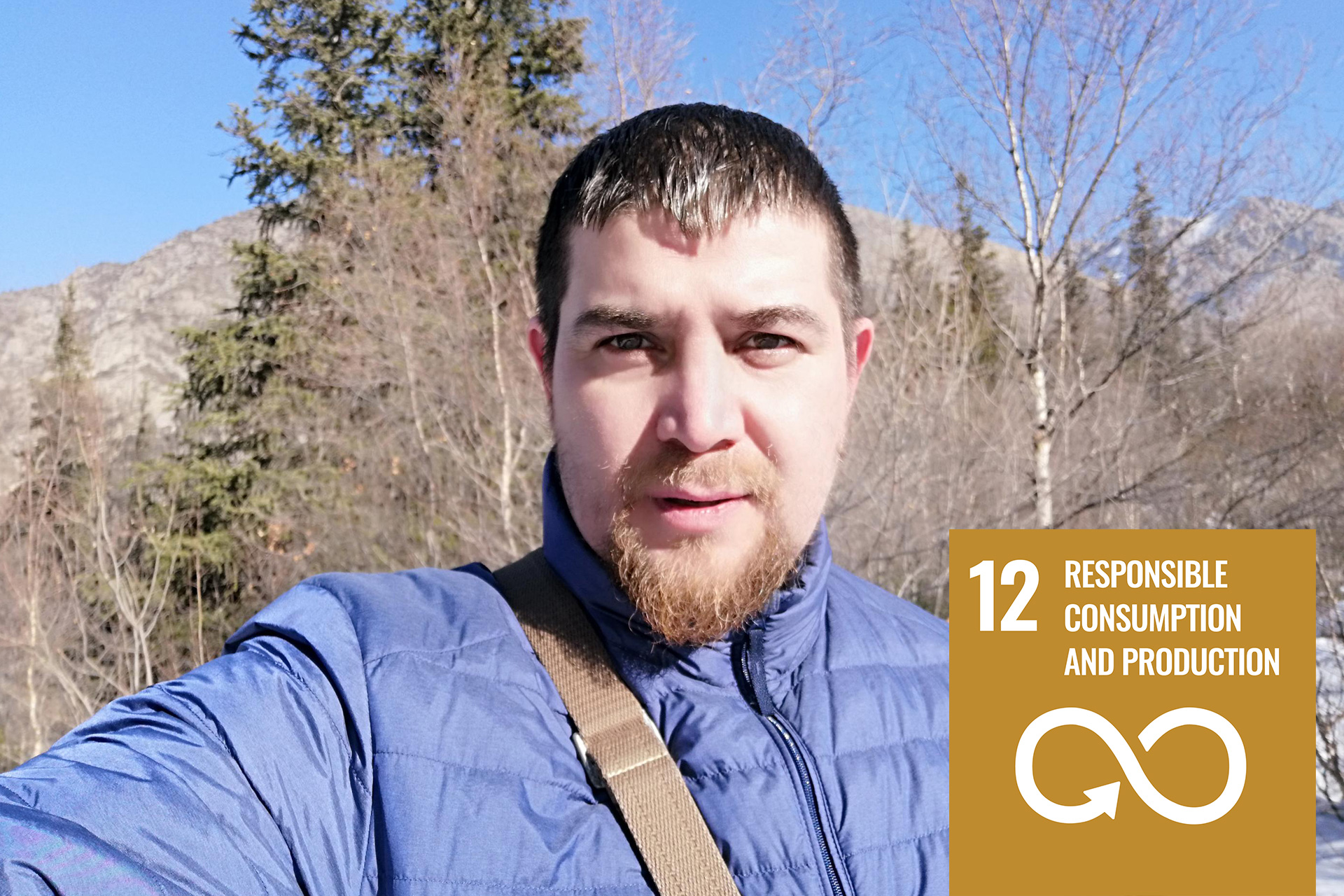
While I was growing up in Kyrgyzstan, my mother was the biggest advocate for disposing of waste responsibly. My siblings and I were all taught to segregate our waste according to the different categories and recycle where possible. She also created a water irrigation system that optimises water use for our home garden. This enabled us to plant various kinds of crops while minimising water usage. I grew up thinking that waste segregation and recycling were standard practices for every household in my area.
I only realised later in life that many people ignore and seem oblivious to the need to preserve the environment we are living in. They have no regard for the detrimental consequences of their destructive habits that they carry out nonchalantly every day. The recent natural disasters that have taken place around the world, like deadly floods, typhoons and earthquakes, should be a wake-up call that our only planet needs our conscientious help.
I genuinely believe that small proactive steps collectively by all of us will help form habits in the long run for humanity to be more aware of living a responsible lifestyle.
Where possible, I purchase natural, locally grown produce for my family, and we try to consume organic food as much as we can. The best way to economically eat organic produce is to grow your own produce in a little vegetable patch or mini garden.
We buy three different coloured bags made from recycled material in my household. My wife and I ensure that all household waste is sorted according to dry, wet, food, and plastic waste categories. We teach our children to do the same. Through my own experience, I have learned that inculcating these lifestyle habits in young people and explaining the reasons behind our efforts to reduce, reuse and recycle allow my kids to grow up to be responsible and conscious of ways to preserve Mother Nature.
The surest way to teach the younger generation is to lead by example. For instance, when my kids open a biscuit packaging, they automatically know which bin to place the wrapper in and which coloured bags should go to which waste bin.
To reduce wastage, I have also adjusted my daily lifestyle habits and am aware of the amount of resources I use like water and electricity. For instance, as part of my religious beliefs, I practise the Islamic ritual of performing prayers five times daily. Previously, I used to take ablution before prayers with a running water tap. However, now I consciously carry a 500ml reusable water bottle to do my ablutions to prevent water wastage.
I am also proud to say that my family’s conscious efforts to live and consume responsibly have had a ripple effect on our relatives and friends. Through many conversations and even debates about safeguarding the environment, many have also adopted some of these practices.
When I first joined the QI Group in 2010, the company’s absolute commitment to preserving nature was a breath of fresh air because it was wholly aligned with the beliefs and practices my mother ingrained in me since I was young.
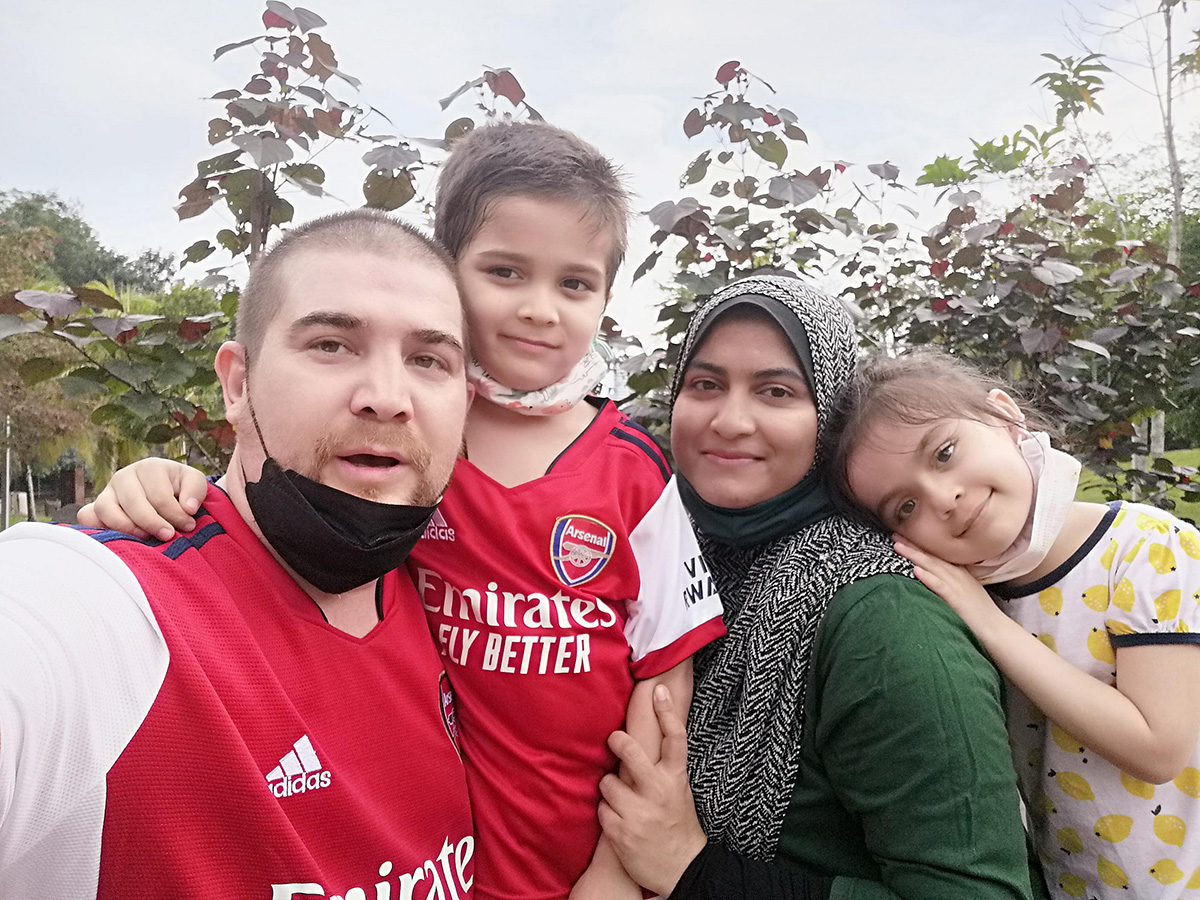
My advice to those seeking to make sustainable lifestyle changes is to just start somewhere, however small the effort. Pick one lifestyle habit that you feel is causing you to waste natural resources and look for ways to incorporate sustainability measures into it. There is so much information available online and on social media. Seek like-minded friends who can provide support and ideas to help you in your conservation journey.
As my mother always says, it is our responsibility to protect the only home we have to live in, to leave behind a greener legacy for generations to come.
Amir Asanov is a Regional Communications Officer under our direct selling subsidiary, QNET. He believes that walking the talk is essential for sustainable living and strongly advocates active recycling.


